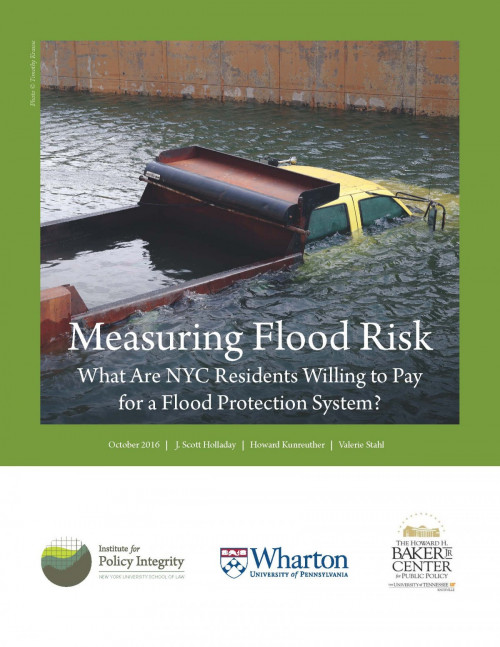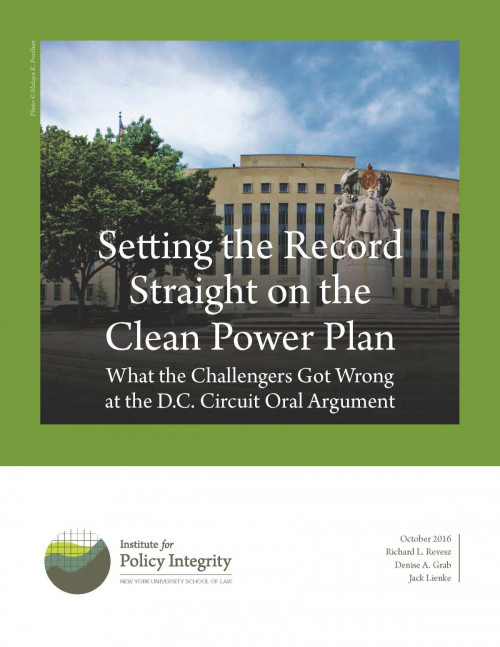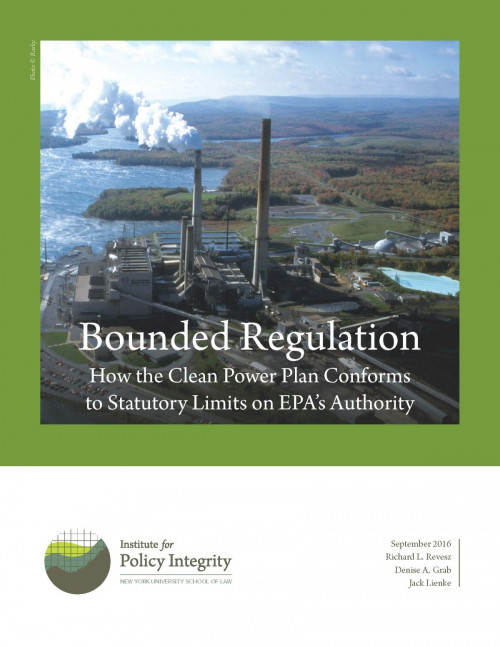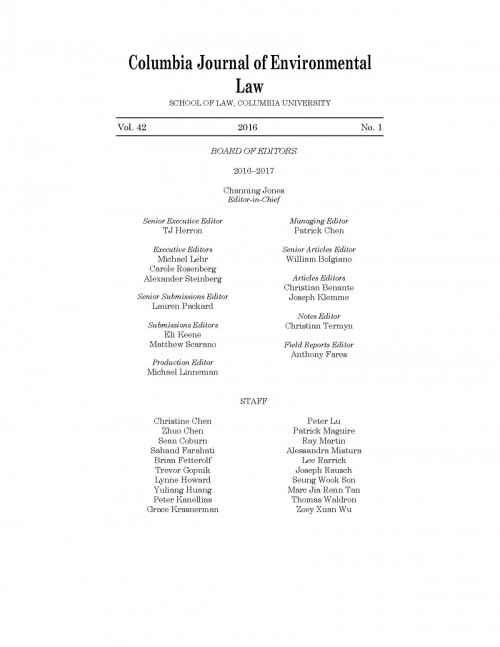-

Measuring Flood Risk
What Are NYC Residents Willing to Pay for a Flood Protection System?
This policy brief evaluates how willingness to pay (WTP) for a flood protection system varies with exposure to flood risk, using detailed flood maps and parcel-level data to identify households within and just beyond the 100-year flood plain in New York City. Past research has estimated that a homeowner’s WTP for flood insurance is largely contingent upon their risk level. However, no studies to date have analyzed the WTP for other forms of flood protection. We conducted a survey of single-family homeowners living in the 100- and 500-year flood plains in New York City, and found that WTP for flood control systems varies with the degree of risk that homeowners face. While the majority of residents living in the 100- year flood plain were willing to pay up to $10 a month to contribute to the cost of a seawall, the majority of residents living in the 500-year flood plain, an area that has a 0.2% risk of flooding in any given year, were only willing to pay up to $7 a month. These results are consistent with other studies demonstrating that risk—actual or perceived—plays a large role in individuals’ WTP for protection from floods.
-

Setting the Record Straight on the Clean Power Plan
What the Challengers Got Wrong at the D.C. Circuit Oral Argument
On September 27, opponents of the U.S. Environmental Protection Agency’s Clean Power Plan presented their case against the rule in a hearing before the U.S. Court of Appeals for the D.C. Circuit. The Clean Power Plan aims to reduce carbon dioxide emissions from the nation’s existing power plants. A coalition of states, utilities, coal companies, and other industry groups have sought to block the rule since it was first proposed in June 2014, while a competing group of states, municipalities, power companies, environmental and public health organizations, and clean energy producers have intervened to support the EPA. Over the course of the seven-hour hearing, the petitioners challenging the Clean Power Plan asserted and implied a number of things that don’t stand up to scrutiny. This report sets the record straight on some of their more notable misstatements.
-

Bounded Regulation
How the Clean Power Plan Conforms to Statutory Limits on EPA’s Authority
This policy brief analyzes the limits of the EPA’s Section 111 regulatory authority and determines that the CPP explicitly acknowledges and respects each of the EPA’s statutory constraints. The brief discusses the eight major constraints for emissions guidelines under Clean Air Act Section 111, and examines how the CPP handles each one. The analysis finds no evidence to support petitioners’ accusations that the the EPA exceeded its regulatory authority.
-

Think Global
International Reciprocity as Justification for a Global Social Cost of Carbon
U.S. climate regulations present a special case of federal agencies applying a global, rather than exclusively domestic, perspective to the costs and benefits in their regulatory impact analyses. Since 2010, federal agencies have emphasized global valuations of climate damages for policies that affect carbon dioxide emissions, using a metric called the “Social Cost of Carbon.” More recently, agencies have also begun to use a global valuation of the “Social Cost of Methane,” for methane emissions. Yet lately, these global metrics have come under attack in courtrooms and academic journals, where opponents have challenged the statutory authority and economic justification for global values. This paper defends a continued focus on the global effects of U.S. climate policy, drawing on legal, strategic, and economic arguments.
-

Next Steps to Reform the Regulations Governing Offshore Oil and Gas Planning and Leasing
Published in the Alaska Law Review
In this article, we argue that fundamental reform is necessary and highlight a series of key themes and topics that must be addressed to improve the regulatory process and promote better, more consistent management outcomes. While the article draws on examples from frontier areas-in particular the U.S. Arctic Ocean-the recommended changes would apply to and benefit all areas of the OCS.
Viewing all publications in Climate and Energy Policy
